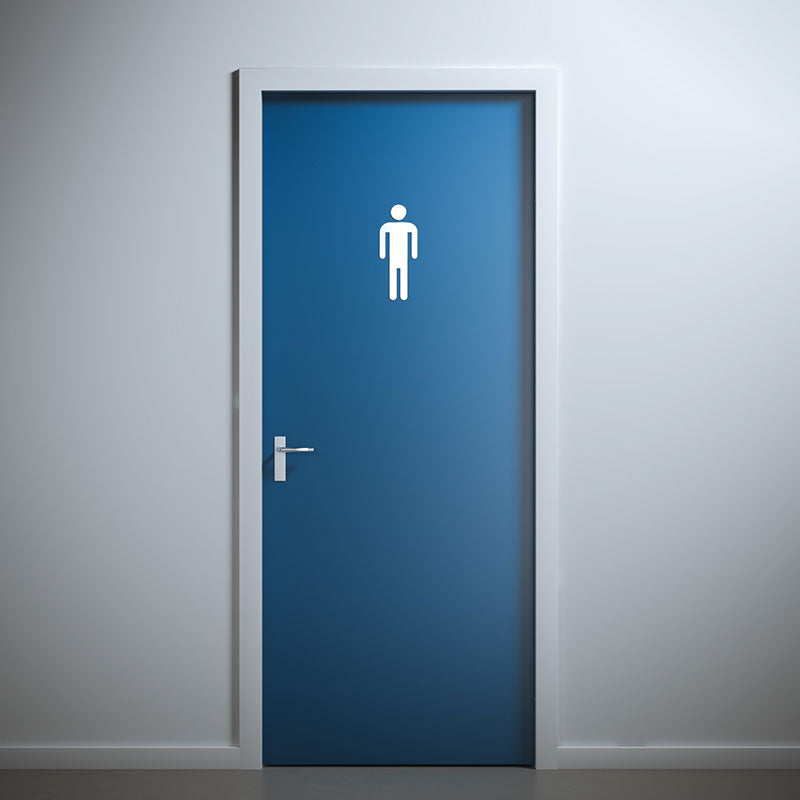1-866-405-5138 (U.S.) 🇺🇸 or
1-925-331-6892 (Non-U.S.)

Men’s urinary problems are often spoken about in hushed tones or not at all. In this guide, we’re going to destigmatize and demystify problems like a weak urinary stream, frequent urgent urination, and uncomfortable urination that men all over the world are dealing with.
With some of the most common urinary problems like UTIs and incontinence disproportionately affecting women due to anatomical differences, it can be difficult for men experiencing bladder problems to find complete information on what’s causing their issues and how to deal with them. Considering the fact that 1 in 3 men over the age of 50 experience some form of trouble urinating, men’s urinary problems are far from uncommon, and can be easier to understand and address than many men think. 1
In this guide, we’ll be covering everything you should know about men’s urinary problems, including weak urine streams, frequent urgent urination, uncomfortable urination, and more. From causes, to symptoms, and tips, let’s go behind the curtain of this important yet oft-overlooked topic.
In any discussion about men’s urinary problems, there’s one incredibly closely related topic that can’t be avoided: the prostate. Prostate problems and trouble urinating go hand in hand for many males as they age, with the relationship coming down to an unfortunate accident of anatomy.
To better understand how the prostate and urinary system are intertwined, here’s a quick refresher of some of the key points we covered in depth with our Ultimate Men’s Prostate Health Guide:
While BPH is responsible for the majority of men’s urinary problems, there are other medical conditions and external factors that can lead to or exacerbate bladder problems in men, such as:
Keeping these common causes of men’s urinary problems in mind, let’s now take a look at each individual symptom that men often experience to better understand each one.
Men with BPH may experience a combination of different urinary problems, and with varying severity. It’s important to note that you should always consult with your doctor to further investigate any of these symptoms, but here’s a more detailed overview of what bladder problems in men may involve.
A weak urine stream in men is often thought of as a “trouble with flow” or “urinary hesitancy”. You may notice difficulty with starting to urinate and a weak or choppy stream of urine that seems to stop and start. This is usually caused by an enlarged prostate constricting the portion of the urethra that it surrounds.

Another one of the most common men’s urinary problems often caused by BPH is a frequent need to urinate accompanied by a feeling of urgency. This often manifests as pesky trips to the bathroom throughout the night, and can even impact sleep quality as a result.
Frequent or urgent urination in males illustrates a sort of “domino effect” in regard to how the prostate impacts urinary health. The constriction of the urethra that leads to a weak stream ultimately may prevent you from fully voiding your bladder, thereby causing it to remain more full than it would normally be.
Known as dysuria, uncomfortable urination in men may be a sign of BPH, but can also indicate another cause of an enlarged prostate called prostatitis. Prostatitis may or may not be caused by a bacterial infection, and is marked by a swelling of the prostate that isn’t caused by excessive growth over time, as with BPH. Dysuria can also indicate conditions like interstitial cystitis or urinary tract infections, so it’s especially important to check with your doctor or urologist when experiencing pain or burning during urination.
So, what do the experts recommend when it comes to alleviating some of the discomfort and inconvenience of men’s urinary problems at home? Let’s conclude with some carefully selected tips you can try out.
Having already gone into a detailed examination of some of the common medical treatments for prostate problems in our aforementioned prostate health guide, we’ll now take a deeper dive into some of the popular non-medical ways men with urinary problems might choose to deal with their discomfort.
It might sound a bit obvious, but being more conscious of how much liquid you drink and when you drink it can be a big help with avoiding inconvenient urinary problems at inopportune times. This can be especially useful in overcoming those constant nighttime trips to the bathroom, and a good rule of thumb is to avoid drinking between dinner and bedtime.
Aside from being careful with when you drink, being careful with what you drink and avoiding things like alcohol, caffeine, and artificial sweeteners can help you avoid bladder irritation.
“Training” your bladder may seem like a strange task at first, but there are some good practices that can help with both frequent urination and a weak urine stream:
It makes sense that changing what you drink could help with men’s urinary problems, but how does diet play a role? Our in-depth article about The Best and Worst Foods to Help Prostate Health takes a close look at how foods rich in compounds like antioxidants and vitamin C can help support prostate health in the face of BPH, while other like dairy and red meat may serve to exacerbate BPH-related bladder problems in men.
A few of the best foods to add to your diet are tomatoes, citrus fruits, and foods high in healthy fats like salmon and flax seeds.

You might already feel like you’re getting your daily exercise in if you’re making constant jogs to the restroom, but according to the Mayo Clinic, some added exercise can help with urinary problems. Being inactive can exacerbate the problem of urine retention that men with BPH may already be dealing with, whereas even a small amount of exercise can keep things flowing smoothly.
There are a number of herbal supplements designed to support a healthy prostate and bladder while promoting healthy urinary function. A conversation with your doctor or urologist is the best way to determine if one of these supplements may be right for you. Some of the most popular natural supplements used by men with urinary problems include:
In summary, it’s not at all uncommon for men to experience urinary problems such as a weak urine stream, frequent urination, and sometimes even uncomfortable urination as they age, often as a result of prostate problems like BPH. With a strong foundation of knowledge as to what causes and exacerbates men’s urinary problems, you’ll be better equipped to come up with a plan with your doctor.
For more educational content like this guide to men’s urinary problems, make sure to follow us on Facebook and Instagram.
Leave a comment